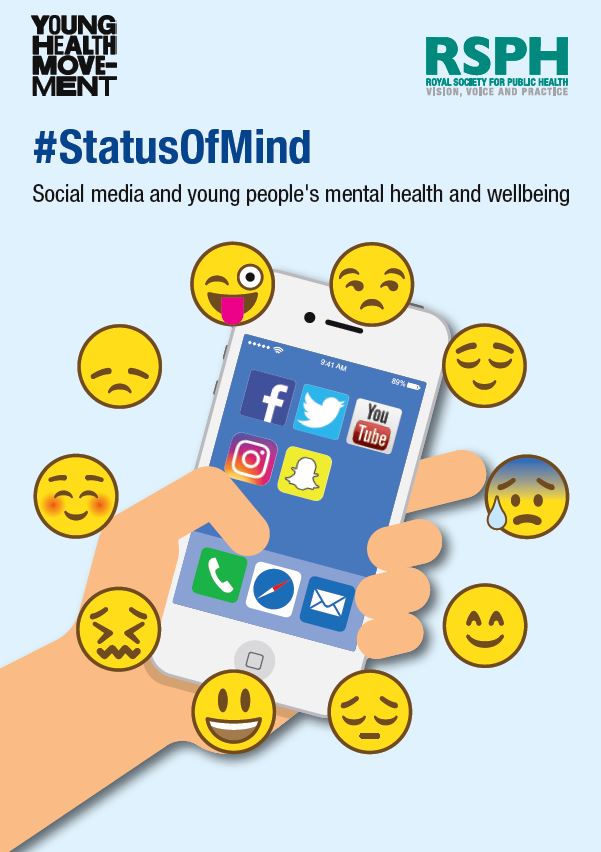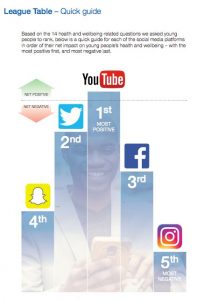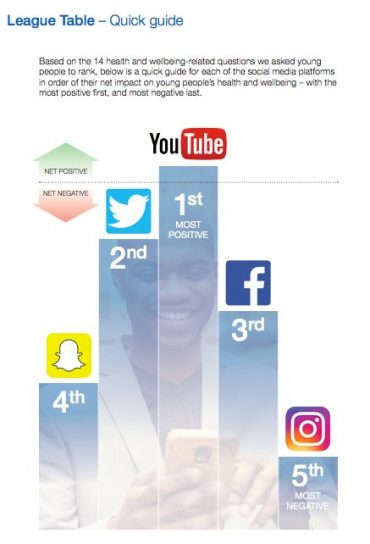
As addictions go, social media can be more addictive than cigarettes or alcohol, according to a report from the Royal Society for Public Health (RSPH), #StatusOfMind, on social media and young people’s mental health and wellbeing.
With 91% of people age 16-24 using the internet for social networking, that addiction connects to rising levels of anxiety and depression, the Royal Society asserts, recommending some calls to action to address this public health problem head-on.
While this report focuses on the population in the United Kingdom (UK), the social media trends are at least as prominent in the US.
The calls to action include:
- Introducing a pop-up heavy usage warning on social media
- Highlighting when photos of people on social media have been digitally manipulated
- Teaching safe social media use in schools
- Identifying users on social media platforms who could be suffering from mental health problems idagnosised through their posts, and discreetly signposted to support them; and,
- Train youth workers and other professionals who engage with young people on digital media.
 Social media can negatively impact mental health, but socnets can help people, as well, RSPH points out. On the upside, positive impacts can include:
Social media can negatively impact mental health, but socnets can help people, as well, RSPH points out. On the upside, positive impacts can include:
- Accessing other peers’ health experiences
- Gaining emotional support and community building
- Communicating self-expression and self-identity
- Making, maintaining, and building on relationships.
For this study, RSPH conducted a survey of young people 14 to 24 years of age living in the UK. The poll analyzed five social media platforms: Facebook, Twitter, Instagram, Snapchat, and YouTube, across 14 dimensions such as loneliness, anxiety, emotional support, body image, community building, and FoMO — Fear of Missing Out, among other factors. The most positive platform was found to be YouTube, detailed in the second graphic.
The bottom-line: RSPH recommends that more research be carried out on the effects of social media on young people’s health.
Health Populi’s Hot Points: Adolescence and young adulthood are potent moments in a person’s life for social and emotional development, RSPH recognizes. This is a universal truth across borders, from the UK across the pond to the United States.
RSPH’s calls to action would also be relevant for young people in America, along with their healthcare providers and schools. Healthcare providers, and especially pediatricians, should consider social media use as part of an exam room conversation. Overuse or addiction to social networks is a new determinant of health to be considered along with healthy food and nutrition, safe physical environments, education and financial wellness. For a good start, the American Academy of Pediatrics published guidelines for social media and young patients in October 2016, accessible here.





 Thank you, Trey Rawles of @Optum, for including me on
Thank you, Trey Rawles of @Optum, for including me on  I was invited to be a Judge for the upcoming
I was invited to be a Judge for the upcoming  For the past 15 years,
For the past 15 years,